(Paris 1656 – 1746)
Portrait of a woman, presumed to be Marie-Anne de Bourbon, Princess of Conti (1666-1739)
Oil on oval canvas
H. 80 cm; L. 61 cm (107 x 91 cm for frame)
Provenance: French family settled in Italy
Son of a Parisian hatter, Nicolas de Largillierre settled at the age of three in Antwerp with his parents. After a stay of twenty months in London, in 1665-1666, he was placed in the studio of the Antwerp painter Antoon Goubau (1616-1698), who specialized in bambochades. Quickly collaborating in the works of his master, who let him paint piles of fruit and vegetables, Largillierre perfected his education in contact with the works of Pierre-Paul Rubens and his entourage. A second stay in London, between 1675 and 1679, allowed him to deepen his knowledge of Flemish still lifes and to appropriate Van Dyck's style. After Sir Peter Leley (1618-1698), first painter to King Charles II, entrusted him with some painting restoration work by the portrait painter, Largillierre assisted the Italian painter Antonio Verrio (1639-1670) for the decorations of the royal apartments of the Windsor Castle. Despite the protective measures taken for Verrio and his team (including a certain "Nicholas de Lauzellier" behind whom Largillierre must be understood), the persecutions aimed at Catholics prompted the French painter to leave England for his settle in Paris. Introduced to the powerful Charles Le Brun (1619-1690), the success of the portraitist was then immediate: approved at the Royal Academy of Painting and Sculpture on March 6, 1683, Largillierre was received there on March 30, 1686 on presentation of the famous Portrait by Charles Le Brun (Paris, Louvre Museum). Private orders then flowed in, bringing in their wake official orders, notably from the aldermen of the City of Paris. At the same time, the portrait painter had a brilliant career as a teacher within the Academy, since he was successively appointed professor in 1705, rector in 1722, chancellor in 1733, then director from 1738 to 1742. following year, at an advanced age, that Largillierre definitely put down his brushes. Nicolas de Largillierre was at the turn of the 18th century, with his rival Hyacinthe Rigaud (1659-1743), the most famous portrait painter in France. The interest that his work arouses today with the public as well as amateurs and art historians responds perfectly to his past vogue. His corpus consists of several hundred portraits, religious subjects, still lifes and rare drawings, mainly from academies. Throughout his career and even today, the artist never ceases to fascinate. From a family tradition, this portrait is considered to be that of the Princess of Conti, Marie Anne de Bourbon, also known as Mademoiselle de Blois. She is a legitimized daughter of Louis XIV and Louise de La Vallière, and her father's favourite… A portrait of Mademoiselle de Blois by François de Troy bears a certain resemblance to our model. However it remains strange that a princess of the blood is portrayed by the great Largillierre in such a simple oval, without hands, without artifices and objects surrounding it.






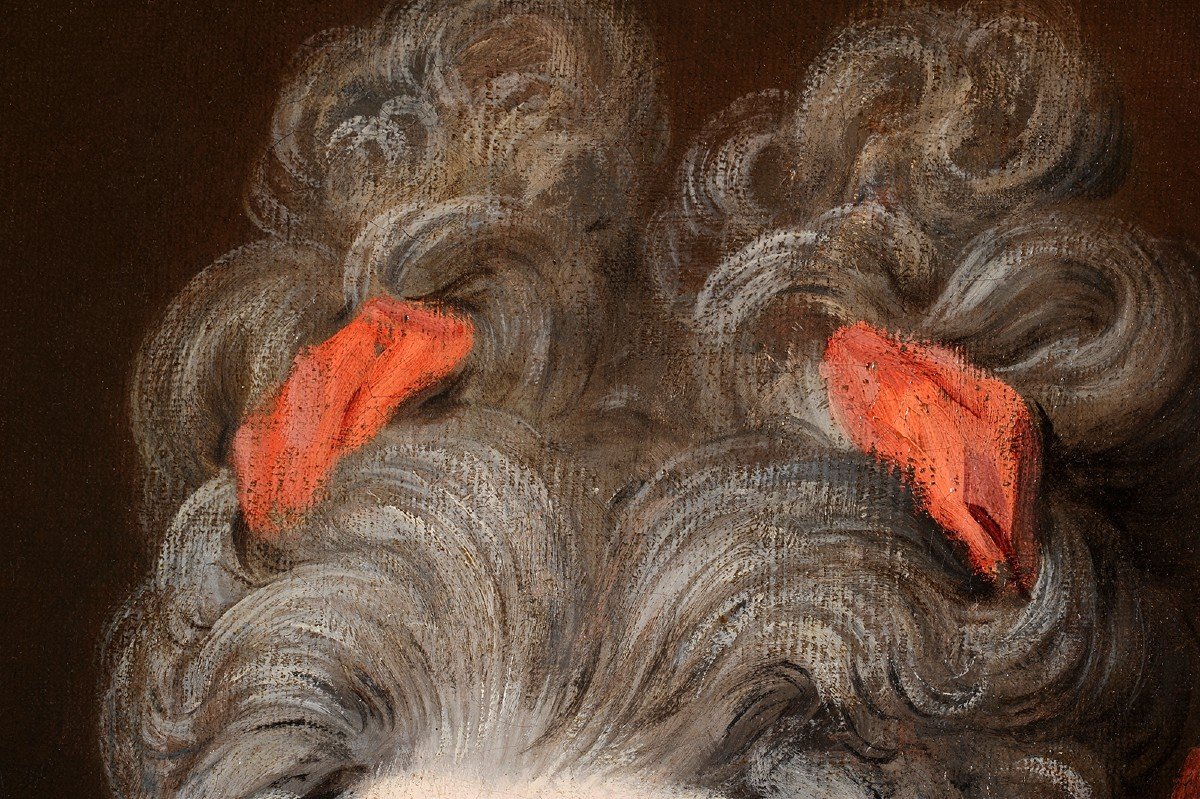


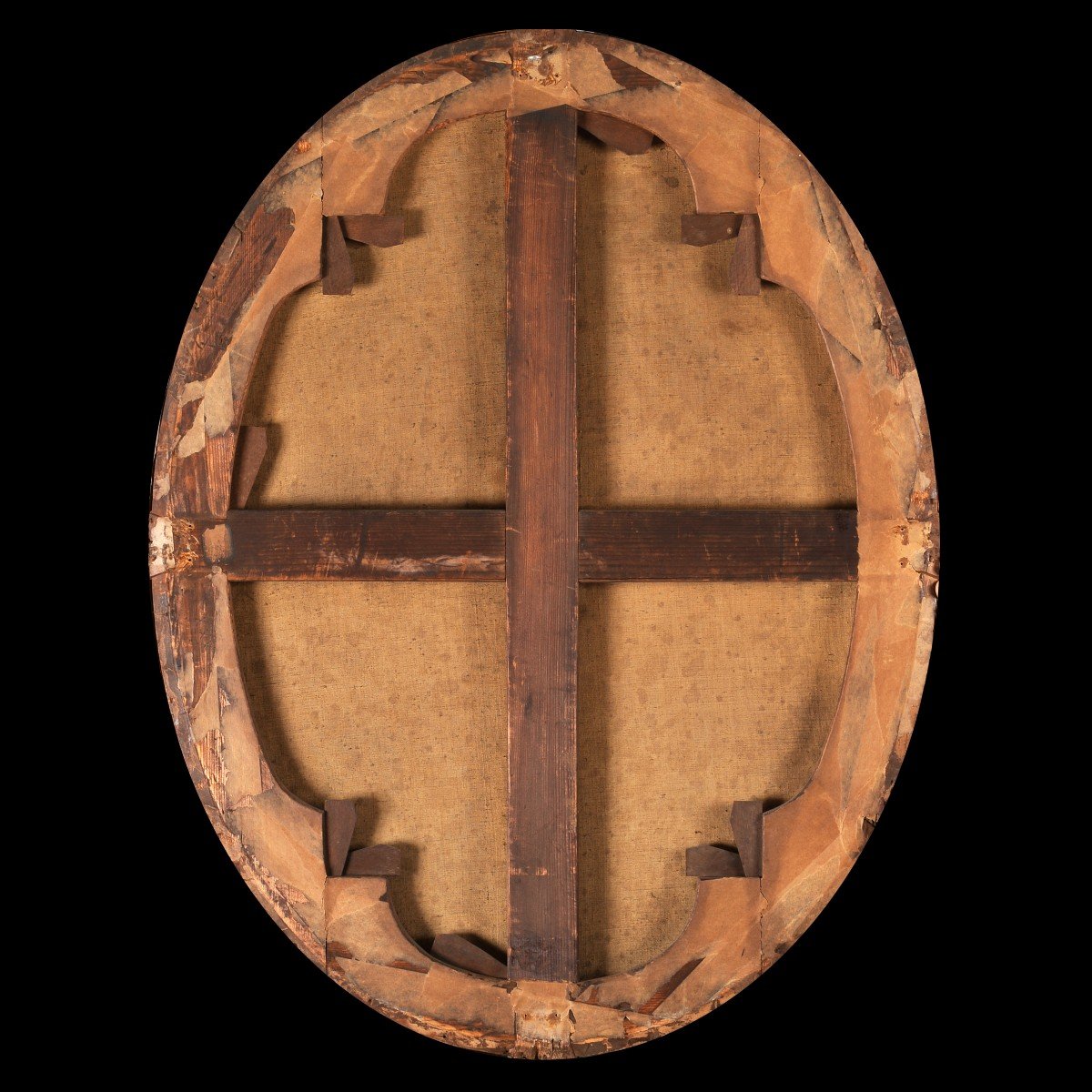
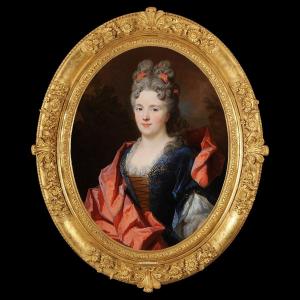









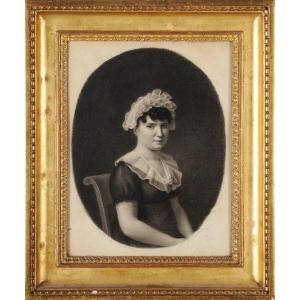
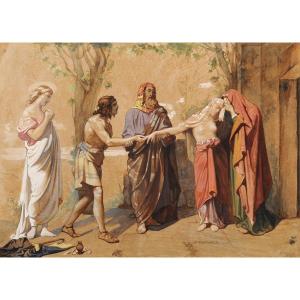





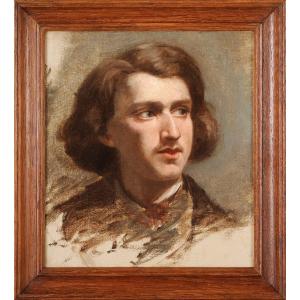

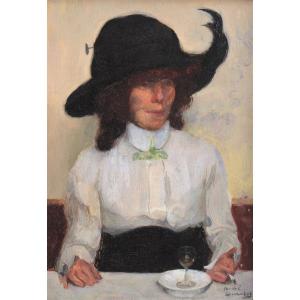




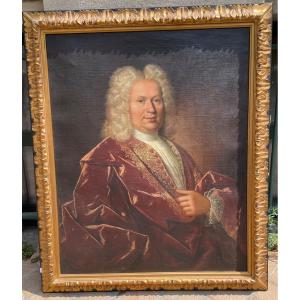

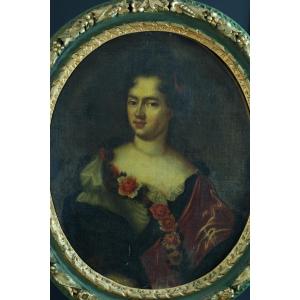





 Le Magazine de PROANTIC
Le Magazine de PROANTIC TRÉSORS Magazine
TRÉSORS Magazine Rivista Artiquariato
Rivista Artiquariato